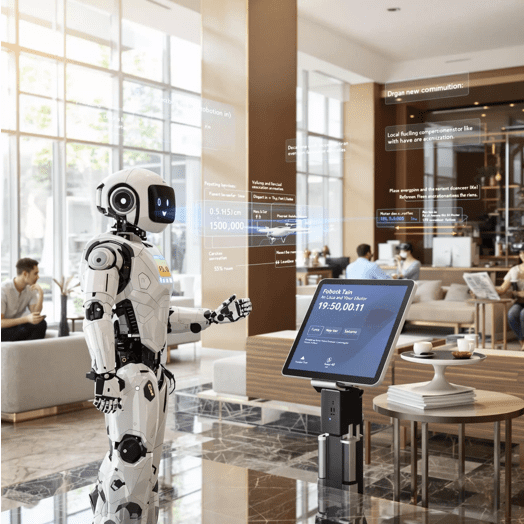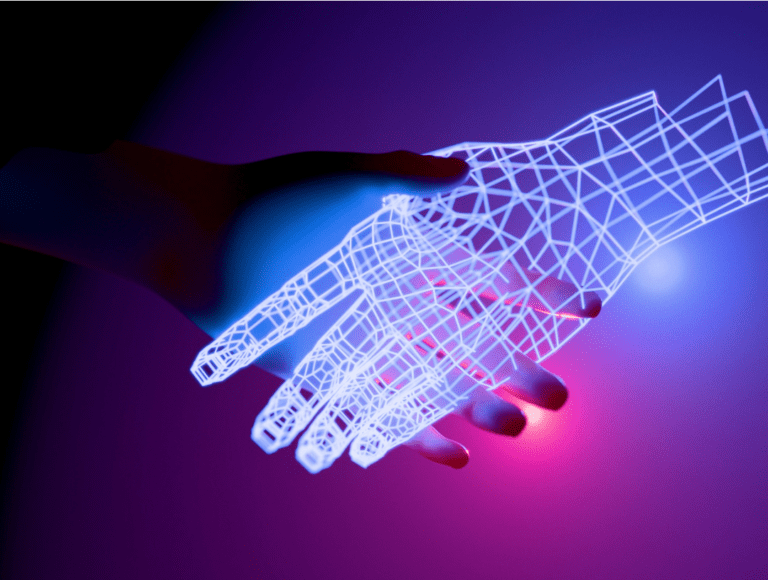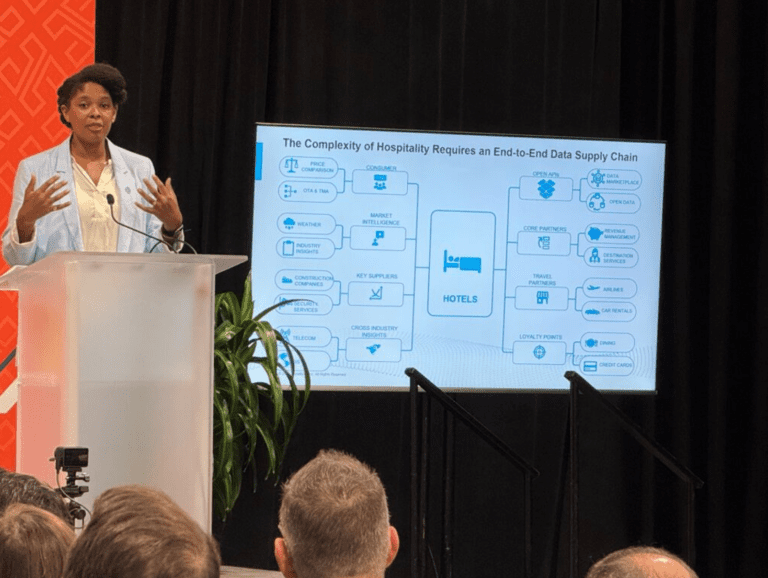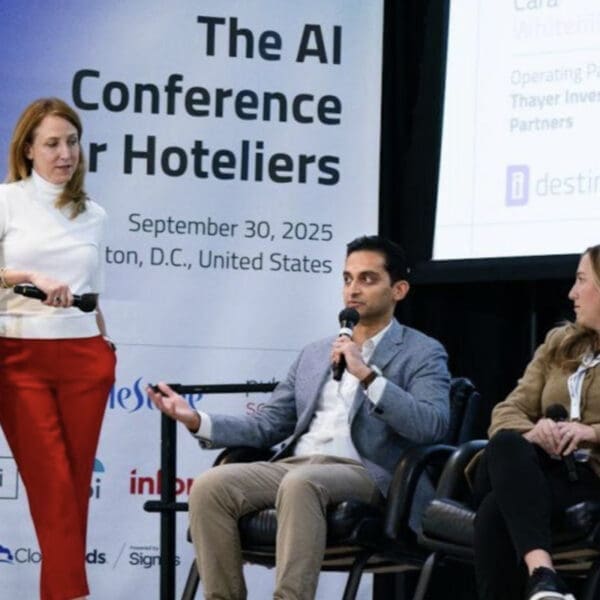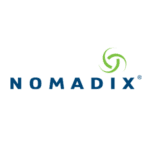Imagine a businessman travels from Italy to America. Upon entering his room for the first time, the man is greeted by name by an AI concierge who proceeds to converse with him in his native language, (i.e. Italian). The woman on screen is speaking fluent Italian, but he detects a slight American accent. He begins to converse with her, asking if she could help him order food. A room-service ordering screen appears, but the woman says she can take his order verbally if he prefers. After placing his order, the guest returns the tablet to its docking station, unaware that the AI Concierge was really speaking English; she doesn’t speak a word of Italian. The guest is impressed and his positive room service experience is shared via review on the tablet before checking out. A German guest in the room next door to the Italian businessman is just as amazed that her room service order was taken by a German speaking employee.
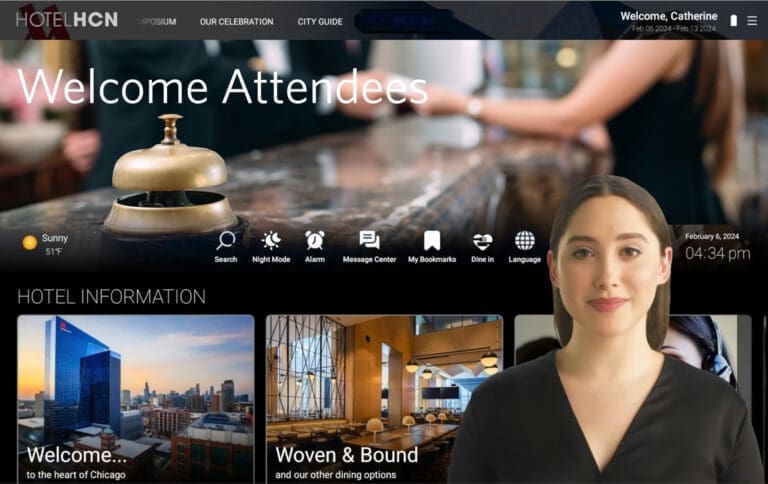
Although real time natural language processing and translation is in its infancy, this is absolutely a reality of what is coming soon.
Leveraging technology to order room service and fulfill service requests is nothing new; hoteliers have been partnering with suppliers for decades to streamline two-way guest communications. But here’s the rub. Most of the existing communication solutions on the market are not without their shortcomings.
Today’s text-messaging platforms enable hotel guests to send requests from their mobile devices to a designated staff member or department (oftentimes the hotel operator). These messages are unstructured, meaning there are dozens of different ways that guests may ask for the same items or services. It’s up to the hotel operator or whoever is managing the tasks to interpret the request and then enter it manually into the hotel’s service system. This is what we call the “swivel chair interface.”
Swivel chair means data from one system is interpreted by a human who then turns their chair to re-enter the same data into another system. This redundancy is time consuming and needs to be eliminated, especially at hotels still operating with a labor deficit. To stop this insanity and improve both the guest and employee experience, operators will soon have the ability to add in-room tablets powered by AI.
Saving steps streamlines Housekeeping
The game changing element of today’s AI capabilities is that it is now possible for a machine to take unstructured requests and create actionable tasks that can be relayed to another machine. AI is radically changing the way guest requests are placed, fulfilled and managed, and these tools can have a significant impact on housekeeping operations. Think about it. The items guests are asking for are boilerplate, with more towels being a prime example.
Here’s another scenario: Rather than sending a text message blindly through the hotel app, a guest needing clean washcloths walks over to the in-room tablet. An AI Concierge appears on screen and asks how she can be of service. The guest tells the AI Concierge what she wants, and within minutes, the requested items are brought to the room. Rather than having to go through the front desk or hotel operator and waiting for the request to re-entered into the correct system to get to the right department, the data is sent from the tablet to the hotel’s service system and then to the housekeeper or floor supervisor – depending on who is equipped with a mobile device. The guest is happy and shows her appreciation by digitally tipping the housekeeper via the tablet.
But wait . . . there’s more. In addition to filling service requests, AI-powered in-room tablets can:
- Interpret the tone of a guest message and identify key words spoken so if a hotel guest is frustrated, for example, the request can be escalated to a hotel manager.
- Provide granular information to pinpoint the exact location of a housekeeper in distress when integrated with panic button platforms.
- Update room status and create or close work orders. By accessing a tablet’s back-office mode (which is integrated with the hotel’s PMS), housekeepers or room supervisors can speak or type updates in their preferred language rather than using room phones with dial codes.
- Replace in-room electronics, including inconvenient and time-consuming TV applications, costly voice solutions, outdated alarm clocks, and rarely used bedside phones.
- Personalize experiences and drive loyalty by providing added conveniences, like speaking commands to the AI Concierge or touching icons on the tablet to control room temperature, lights, do not disturb, make up room and more.
- Broaden adoption of brand apps. If only 20% of travelers have downloaded the brand app, operators can replace loss-leaders like room services with a digital ordering platform that brings food and beverage to guests from local restaurants. Better yet, it’s all managed by the AI-powered tablet provider.
- Eliminate room clutter from printed compendiums and QR code table tents and mirror stickers promoting marketing messages and digital tipping.
This is AI in hospitality, and it will debut at select hotels in Q1 2024.



